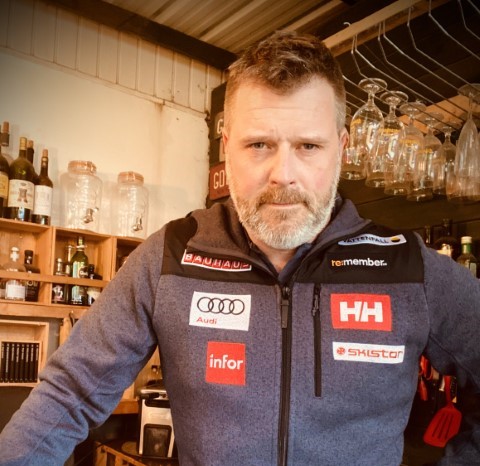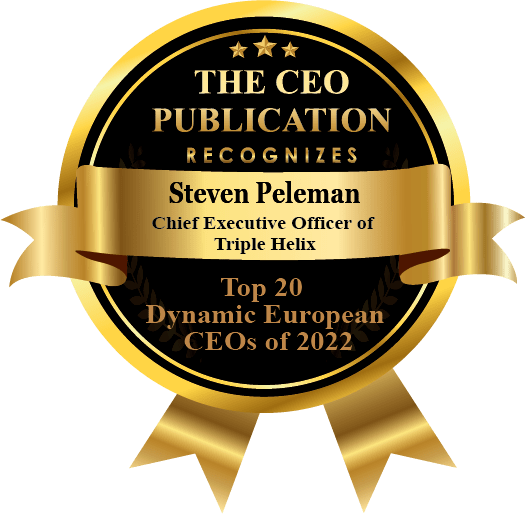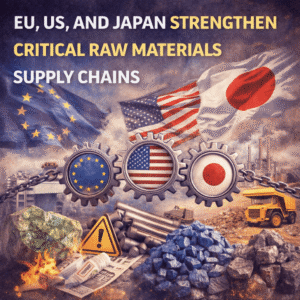

CEO
Apart from being the founder, Steven Peleman’s role within Triple Helix is best explained by describing his background and character. He is the engineering and business economics child of a professional trumpet player and a textile artist. He spent most of his childhood training, competing very hard as an alpine ski racer, and the remaining time working to pay for his unusual hobby (for a Belgian). Steven has a strange affinity for the not-so-obvious challenges few are willing to take on. With great tenacity and persistence, he manages to combine his creative skills with his analytical side to deliver on these demanding challenges with an inspiring enthusiasm and energy that causes others to join in.
The steadfast leader is a support system for budding entrepreneurs trying hard to establish themselves. “The easiest thing to do for anyone is to keep an open ear and door. Despite the preciousness of time, you never know what will come out of your investment to try and help someone else,” he asserts. This first involves listening, trying to understand what drives others, and then suggesting how one can help. “Because entrepreneurial success is highly correlated with stamina and staying true to yourself and your identity while being mentally and cognitively flexible, I try to keep other people confident and comfortable. Of course, opening my network, and sharing experiences (good and bad) also helps. And then there’s a number of organized formulae in which experienced professionals coach others that I’m also part of.” Armed with this ideology, Steven is taking the company to new heights.
Steven strongly believes CEO’s, from the smallest enterprises to the biggest corporates, have a duty to radiate hope and inclusiveness on a number of levels. “Because of the way how capital markets are organized – short-term and still mainly financials driven -, circular economics require new business models and equilibria, but there is enough economic and financial expertise out there to support them in doing that,” explains the pioneering leader. “Achieving sustainable breakthroughs without too much impact on quality of life is also an obvious mandate. You cannot win in a losing world and if you do this well, this is also a tremendous growth opportunity. All in all, it might prove to be the only viable long-term growth opportunity. And finally, we can again upgrade low skilled labor, activate the local and social economy and make them part of this more circular model. If CEO’s really do this, without greenwashing, it provides hope for all.”
Bespoke Solution
Based upon a bespoke methodology (Triple Helix Material Impact), Triple Helix has created a corresponding venture studio with underlying investments and operational clusters, called Molecules as a Service BV. The clusters include investments and newco’s offering recycling infrastructure as a service, reversed and circular supply chain solutions, production of hybrid and non-petroleum-based materials, and digital solutions for the circular economy.
Steven started Triple Helix Molecules as a Service, their new circular venture studio, on January 3rd, 2020 without any money and right before Covid hit. “I’m proud we have arrived at a point that we are now preparing and building chemical recycling plants with $60 million budgets. But even more so, in the past 3 years, we have established a credible position in the market that gives us reason to believe that we can and in fact will have a big hand in converting an entire industry cluster towards unseen levels of sustainability and circularity.”
It is pertinent to mention that Triple Helix is working in high-tech environments, but what is of the essence is a drive to try and understand the basics properly. The company tries to incorporate 3 fundamental principles while working with any technology.
Assisting Clients towards Future-Proof Productivity
Triple Helix tries to make specific material chains more circular and they wish to keep molecules or materials circulating longer in the economy before they are incinerated or landfilled. “Our solutions are based upon the creation and management of venture companies we systematically set up with a number of ecosystem partners – ideally a few value chain positions – so that a particular issue gets resolved making a material more circular,” explains Steven. “This can be through recycling or upcycling technology, reversed logistics operations, digital levers and of course by applying hybrid chemistry and materials engineering so that waste or hybrid materials can be used in existing or new applications.”
In order to get full support from industries, Triple Helix does not want to interfere with existing market dynamics but focus on pre-competitive problems all stakeholders are faced with. According to Steven, this gives a huge market potential and demonstratable market relevance from the start. Also, it allows existing and new players to come on board. This is a new approach addressed as the ‘zero-plus economy’. Also, because waste-to-raw materials activities are ideally organized in local hubs to reduce transportation cost and eco-footprint, it allows for geographical upscaling through franchise businesses and licensing in genuine think global – act local style. “In short, everyone wins and the economy gets a boost of additional business with positive societal and ecological impact. While we are setting up a first upcycling plant for polyurethane foams, we are preparing a global roll-out of similar follow-up plants modified to their local context. In addition and to further reinforce the positive impact and competitiveness, we are also working on digital and logistics solutions in automotive and construction to make sure all relevant waste streams not only get to our plants efficiently, but also to other sites that take care of different materials to be made more circular.,” elucidates Steven.
While Triple Helix is focusing on building the PU recycling plant near Antwerp, they are also starting up other recycling operations related to stone waste and high-end furniture foam. In addition, Triple Helix is launching a software proof-of-concept on real-time scanning of contaminations in incoming waste streams. This is not only promising for the recycling industry but for shipping companies, 3PL’s and port authorities. Going forward, Steven wants to work on growing the financial basis and global impact of the Triple Helix Molecules as a Service ‘formula’.


" I’m proud we have arrived at a point that we are now preparing and building chemical recycling plants with $60 million budgets. "
Steven Peleman
Triple Helix




© THE CEO PUBLICATION 2021 | All rights reserved. Terms and condition | Privacy and Policy